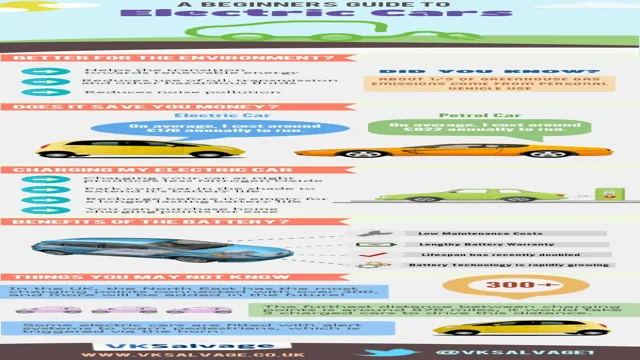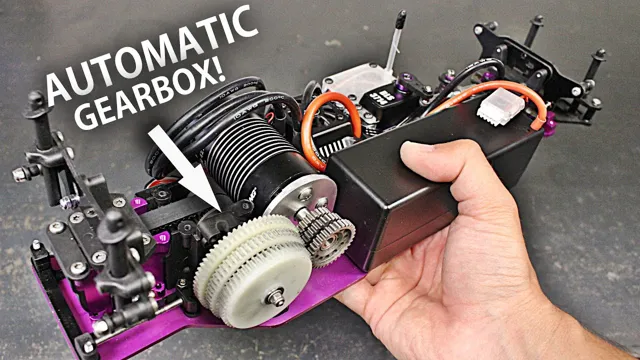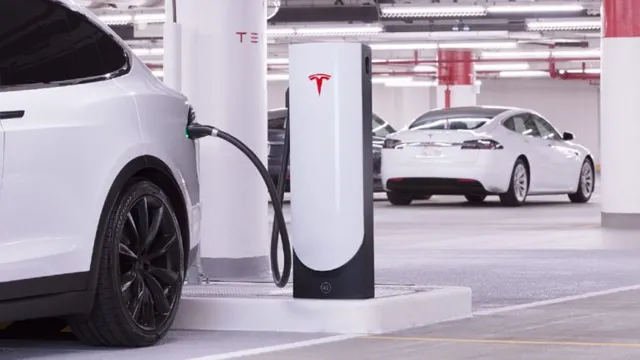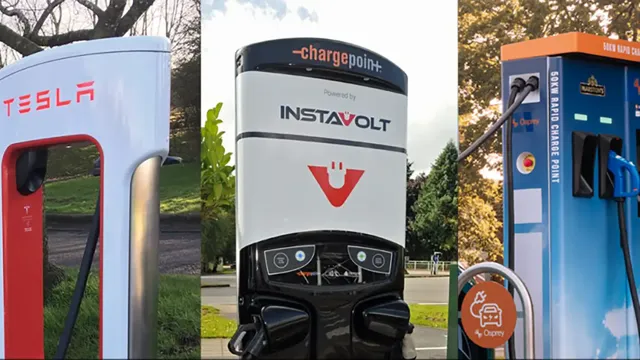The Ultimate Guide to Buying Used Electric Cars: A Step-by-Step Approach
Electric cars have become increasingly popular in recent years as people become more environmentally conscious and seek out a greener way of living. Buying a used electric car can be a great way to take advantage of the many benefits of electric vehicles without breaking the bank. However, it can also be tricky to navigate the world of used electric cars.
With so many different models and brands, and different factors to consider such as battery life and charging infrastructure, it can be tough to know where to start. That’s where this guide comes in – we’ll walk you through everything you need to know to make an informed decision and find the perfect used electric car for you. So, buckle up and let’s dive in!
Benefits of Buying Used
If you’re considering buying an electric car, but are hesitant about the cost of a brand-new one, you should consider purchasing a used electric car. Used electric cars are becoming increasingly popular, and for a good reason. They’re not only more affordable, but they also come with several benefits.
For one, you’ll save a considerable amount of money upfront. Used electric cars are typically a fraction of the cost of new ones. What’s more, you’ll also save on registration fees and insurance premiums.
Additionally, used electric cars have already undergone the steep depreciation curve that new cars experience, meaning you’ll experience less of a financial loss if you decide to sell your used electric car later on. Finally, by purchasing a used electric car, you’re helping to reduce carbon emissions and promoting a more sustainable way of living. With all these benefits in mind, it’s easy to see why a guide to buying used electric cars would be helpful for anyone considering an environmentally-friendly and cost-effective mode of transportation.
Lower Cost
Lower Cost One of the most significant benefits of buying a used product is its lower cost. Whether you’re looking for a car, electronic device, or furniture, opting for a pre-owned item can save you a considerable amount of money compared to buying a brand new one. The reason for this has much to do with the fact that a new product generally demands a premium price due to its freshness, availability, and other factors such as brand perception, whereas used products come at a lower cost due to factors such as depreciation, wear and tear, and availability.
Therefore, the cost of purchasing a secondhand product can be substantial in comparison to its new version, making it an excellent option for those who want to save money without compromising on quality and functionality. Additionally, the availability of platforms like Craigslist, Facebook marketplace, and eBay has made buying secondhand items easier than ever, so it’s a good time to start sourcing used products that meet your needs.
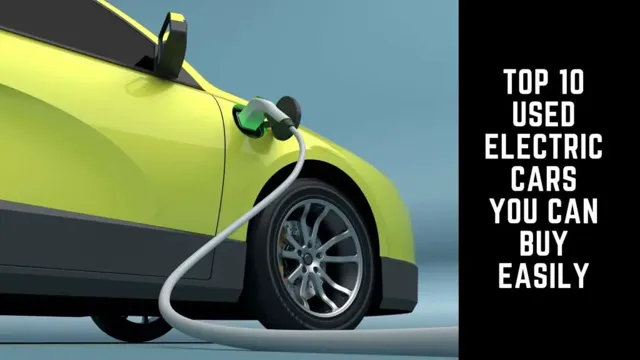
Environmentally-Friendly
When it comes to saving the environment, every little bit counts. One way you can make a difference is by buying used items instead of brand new ones. There are plenty of benefits to buying used, both for you and the environment.
First and foremost, buying used means one less item will end up in a landfill. The production of new goods uses up valuable resources like energy and water, but by purchasing something that’s already been made, you’re reducing your carbon footprint. Plus, buying used can often save you money in the long run.
While used items may not be shiny and new, they’ve often been gently used and still have plenty of life left in them. So next time you’re in the market for something, consider checking out local thrift stores or online marketplaces for used options. Your wallet and the environment will thank you.
Less Depreciation
One of the biggest advantages of purchasing a used car is that it will depreciate less over time. Unlike new vehicles, which can lose up to 20% of their value as soon you drive them off the lot, used cars have already gone through their initial depreciation. This means that the value of your vehicle will remain more stable over time, saving you money in the long run.
Additionally, depreciation is especially important if you plan on selling your car in the future. Because used cars have already gone through their initial drop in value, you may be able to sell your vehicle for a similar price to what you paid for it, or even make a profit. Overall, buying a used car can be a smart financial decision if you are looking to save money on depreciation costs.
Factors to Consider
When it comes to buying a used electric car, there are a few factors to consider before making a purchase. Firstly, it’s important to do your research on the specific make and model you’re interested in. Check online forums and reviews to gauge common issues or potential faults before handing over your money.
Secondly, understand the vehicle’s history, such as any accidents or repairs, as well as its mileage. Additionally, ensure the battery’s health is at an optimal level, as replacing an electric car battery can come with a hefty price tag. Lastly, consider the cost of owning an electric car, including potential charging costs, insurance, and maintenance.
By taking these factors into account, you can make an informed decision when buying a used electric car that will ultimately save you time and money in the long run. So, why not give an eco-friendly option a go?
Battery Health
Battery health is an extremely important factor to consider when it comes to your electronic devices. There are a multitude of factors that can affect the health of your battery, such as how often you use your device, the type of battery your device uses, and the conditions in which you use it. One of the main factors that affects battery health is temperature.
Extreme cold or hot temperatures can cause damage to your battery cells, making them less effective over time. Another factor is the number of charge cycles your battery has undergone. Every time you charge your device, it uses up one charge cycle and reduces the overall health of your battery.
Additionally, how you charge your device can also affect battery health. Charging your device to 100% every time can be detrimental to your battery’s overall health, as can keeping your device plugged in at all times. It’s important to consider all of these factors in order to maintain the health and longevity of your battery.
Warranty
When purchasing a product, one crucial factor to consider is the warranty. A warranty is an assurance from the manufacturer that they will repair or replace the product if it develops any faults or defects within the warranty period. However, warranties differ from one product to another, making it essential to read and understand the warranty’s terms and conditions before making a purchase.
Factors to consider when evaluating a warranty include the length of the warranty, what it covers, and any exclusions. You should also consider the reputation of the manufacturer and their customer service. A reliable warranty will give you the peace of mind that you need to invest in a product without worrying about unexpected repair charges.
Therefore, when making a purchase, take your time to read and understand the warranty’s terms to ensure that you are getting the best protection for your investment.
Mileage
When considering mileage for your vehicle, there are a number of factors you should keep in mind. First and foremost, the type of driving you do will have a significant impact on your gas usage. If you do mostly city driving, you may get fewer miles per gallon than someone who does mostly highway driving.
The type of vehicle you have is another important consideration. A larger, heavier vehicle will typically use more gas than a smaller, lighter one. Other factors that can affect your mileage include the condition of your vehicle, the type of fuel you use, and even the weather.
All of these variables can impact your gas usage, so it’s important to pay attention to them and make adjustments as needed. With a bit of careful planning and attention to these factors, you can help to maximize your vehicle’s fuel efficiency and get the most out of every tank of gas.
Charging Options
When it comes to charging your devices, there are a variety of options available. The factors you’ll want to consider include the type of device you have, the speed at which you need it to charge, and the environment in which you’ll be charging it. For example, if you’re traveling, you’ll want to make sure you have a portable charger that can keep your devices powered up while you’re on the go.
If you’re at home, you might opt for a wall charger that can quickly charge your phone or tablet. Another consideration is the type of cable you’ll need to use- USB-C cables are becoming more common and can offer faster charging speeds than traditional USB-A cables. As you weigh your options, it’s important to keep in mind the specific needs of your devices and the situations in which you’ll be using them.
With the right charging setup, you can ensure that your devices stay powered up no matter where you go.
Where to Buy
If you’re in the market for a used electric car, there are a few key things to keep in mind when it comes to where to buy. First and foremost, you’ll want to do your research and make sure you’re buying from a reputable dealer or private seller. Websites like Carfax and Autocheck can provide valuable information about a car’s history, including accidents and maintenance records.
Additionally, you may want to look into certified pre-owned programs from electric car manufacturers, which can offer added peace of mind and assurances about the car’s quality. Another option to consider is buying from a used car dealership that specializes in electric vehicles. These dealerships may have a wider selection of options and more expertise when it comes to electric car technology.
Finally, don’t overlook the potential benefits of buying from a private seller. While there are risks involved, buying from a private seller can sometimes lead to a better deal and more personalized attention. No matter where you choose to buy, be sure to test drive the car, thoroughly inspect it, and ask plenty of questions before making a final decision.
Dealerships
When it comes to buying a car, one of the biggest decisions you’ll make is where to purchase it. Dealerships are a popular choice for many people. They offer a range of vehicles to choose from and often have financing options available.
However, not all dealerships are created equal, and it’s essential to do your research before making a purchase. Look for dealerships that have good reviews and ratings from previous customers. Consider the location of the dealership and whether it’s convenient for you to get there.
You also want to look for dealerships that have a good selection of cars in your price range. Whether you’re looking for a new or used car, purchasing from a dealership can provide peace of mind and added benefits like warranties and maintenance packages. So if you’re in the market for a new ride, consider visiting a reputable dealership near you.
Private Sellers
If you’re looking to buy a car from a private seller, there are a few things you can do to make sure you’re getting a good deal. The first step is to research the make and model of the car you’re interested in, so you know what to look for when you go to inspect it. Check websites like Kelley Blue Book to get an idea of the car’s value and any potential problems that it may have.
Another good idea is to get a vehicle history report, which will tell you if the car has been in any accidents or has any major mechanical problems. When you go to inspect the car, make sure you take your time and look for any signs of wear and tear or damage. Take the car for a test drive to make sure it runs smoothly and that you’re comfortable driving it.
If everything checks out, negotiate a fair price and make sure to get a written agreement before handing over any money. Remember, buying a car from a private seller can be a great way to save money, but make sure you do your due diligence to avoid any potential issues down the road.
Conclusion
In the end, buying a used electric car can be a great choice for those looking to save money, reduce their carbon footprint, and enjoy the perks of driving an electric vehicle. Just like any purchase, it’s important to do your research and make sure you’re getting a good deal. But with a little bit of knowledge and some savvy shopping skills, you’ll be able to drive away with a great used electric car that fits both your budget and your lifestyle.
So go ahead, put the pedal to the metal, and join the electric revolution today!”
FAQs
What should I look for when buying a used electric car?
When buying a used electric car, it’s important to check the battery’s condition, the car’s service history, and its overall condition. You may also want to have a professional inspection done.
How far can I expect to drive on a single charge in a used electric car?
The range of a used electric car will depend on its age, condition, and battery capacity. Some older models may only have a range of 50-100 miles, while newer models can have ranges of over 200 miles on a single charge.
How long will the battery last in a used electric car?
The lifespan of an electric car battery will depend on several factors, including its age, usage, and charging habits. Some batteries may last up to 10 years or more, while others may need to be replaced after just a few years.
Can I still get tax incentives or rebates when buying a used electric car?
In some cases, you may still be eligible for tax incentives or rebates when buying a used electric car. However, the availability and amount of these incentives will depend on where you live and the specific car you are buying. It’s important to do your research before making a purchase.

